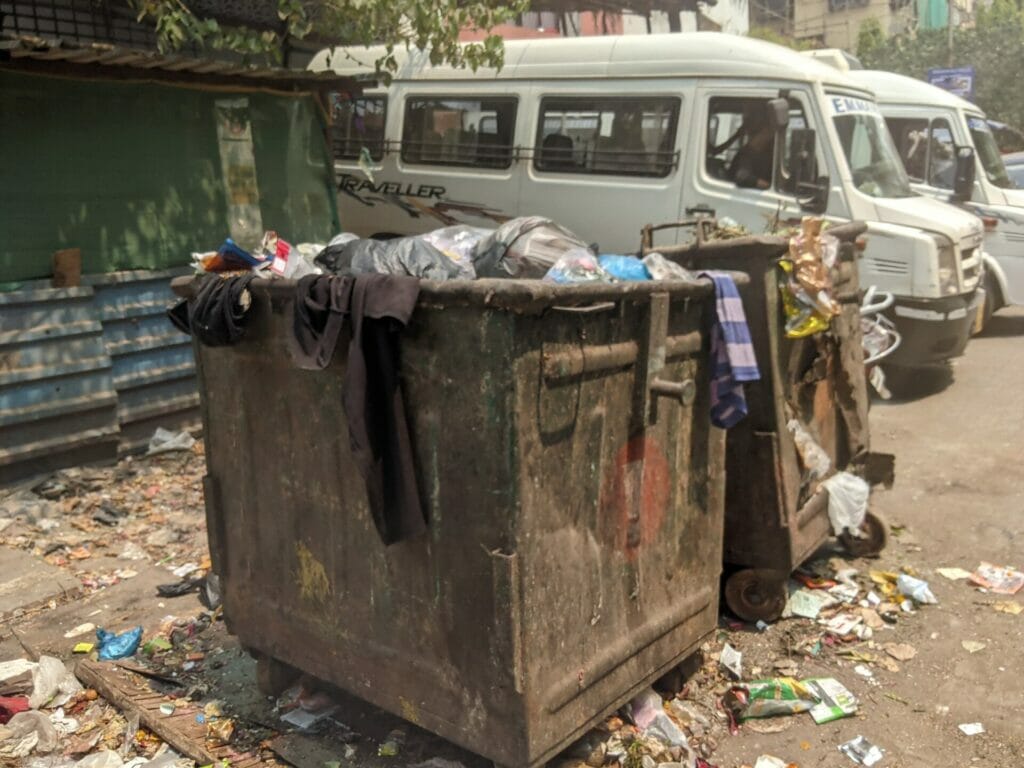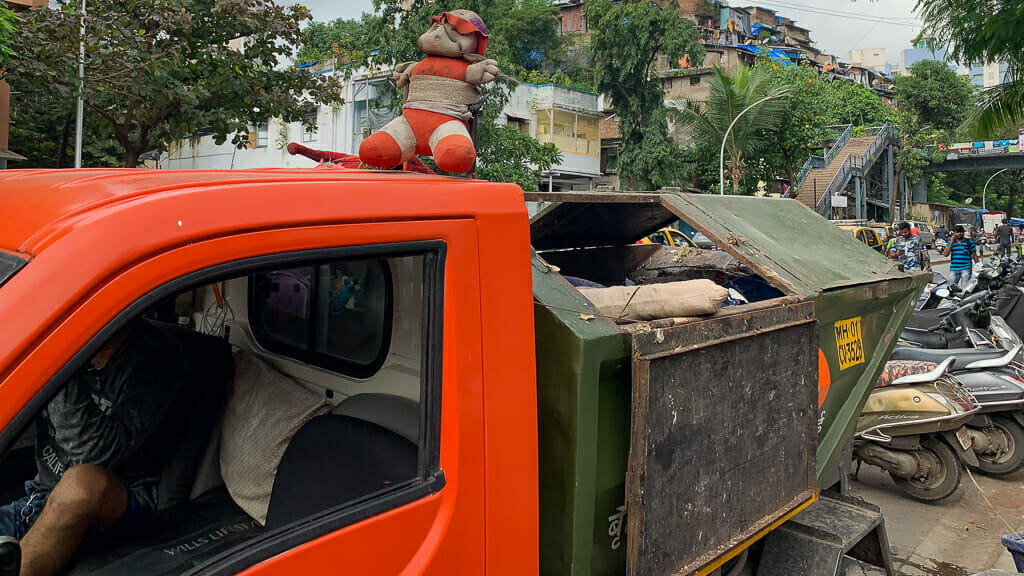A school in Andheri East has been requesting the Brihanmumbai Municipal Corporation (BMC) to shift the open metal garbage bin situated near their entrance to a different location for the last ten years.
Up until now, Tridha school has sent about 20 letters to their local ward office in K east, they have written to the state’s health department and the state’s education department. “The situation worsens during the rains and creates a scarier health hazard,” says Dilshad, a teacher from the school.
The school is surrounded by a local market and further ahead is an informal settlement. For both, the garbage bin is convenient. “There are two other garbage bins but they’re a little farther from here,” says a shopkeeper in the area.

BMC officials support the locals and say the garbage bin cannot be moved because the majority in the area depend on it. When contacted K East ward’s Assistant Commissioner Manish Valanju raised a question: What came earlier, the garbage bin or the school?
“It was the garbage bin. That’s not an excuse but we’re deliberating to find the best solution. We are trying for the garbage to be segregated at source but that is not happening. Right now the problem is that a lot of people are throwing their waste there at any time.”
The school says even if the civic officials cannot relocate the bin, an alternative would be to ensure it is cleared up early in the morning before students arrive. “There are set timings when the garbage is collected and there is an early morning shift but if the school is saying it is delayed then we can try to ensure it is done on time,” Valanju says.
What are the rules
There are more schools that face this problem. Last year, a popular Twitter handle Roads of Mumbai flagged the issue of uncleared garbage bin next to one BMC school building in Mohali village on Andheri-Ghatkopar road.
The Head of Solid Waste Management Prashant Tayshete says BMC has stopped setting up open metal garbage bins in the city and go house to house or apartment to apartment to collect it. “The only exception there can be is slums but there as well we try,” he says.
Read more: Humanizing the lives of waste-pickers in Deonar
However, waste management expert and director of the non-profit Mumbai Sustainability Centre Rishi Aggarwal points out that as per solid waste management rules 2016 BMC is responsible for waste collection from all households including slums.
“The garbage doesn’t have to lie around in a bin forever. For collecting waste from thousand people, it takes two people and one vehicle and close to two hours. Even if you hire five people who start early in the morning, they can wind up the area quickly,” he says.
“Once people are used to this convenience, habit of segregation is not difficult to inculcate. Even if the corporation does diligent door-to-door pick up and accepts unsegregated waste for a month and then tells people they won’t accept waste until it is segregated, people will oblige.”
‘We don’t like our city dirty’
BMC’s SWM department’s assistant engineer Uddhav Chandashive says metal containers were replaced by plastic bins in 2012-13. “There are no new metal garbage containers in the city. The ones that are there have existed for a long time and because of that people are used to it and don’t want it to be relocated.” he says.
He adds that it is difficult to ensure complete door-to-door pick up in slums because the residents have different timings to dispose waste. “People throw garbage in the night, often after dinner because they don’t want to keep it in their home. There is a mismatch between timings.”
Sanitation workers segregate the waste in the area from where they collect the garbage itself, he says. “This is for people to see how it is done. We are trying different ways to tackle the issue of waste segregation and open waste, we don’t want our city to be dirty either.”
Read more: Explainer: Segregating waste manually to minimise the burden on landfills
When asked about the case of garbage bins near schools, Chandashive says, “As a general rule there shouldn’t be a garbage bin near a school but then if a bin was there before the school then they should have constructed it in a way the bin wouldn’t been a problem.”

Meanwhile, Suyash, a parent of a student enrolled at Tridha school says, “The school reached out to many of us (parents) earlier this month and encouraged us to raise our voices on social media platforms. There shouldn’t be a garbage bin kept next to a school, it is unhygienic and needs to be moved on humanitarian grounds.”
The parents, students and teachers of Tridha school have also started an online petition to relocate the bin. Suyash himself has filed multiple complaints with BMC. “The sanitation workers have to mark their attendance between 6:30 am and 7 am, they then leave for waste collection. The most that can be done to resolve such situations is ensuring the bin is cleared promptly,” Chandashive says.